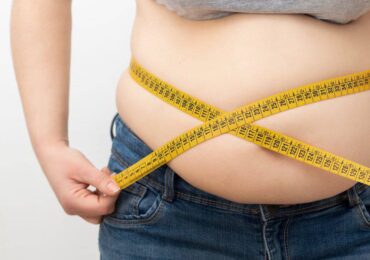A study spanning 16 years and involving over 66,000 participants has unveiled a significant connection between symptoms of insomnia and hypertension in women. The research underscores the critical role of quality sleep in maintaining overall health, especially among women, emphasizing the need for early detection and intervention.
Key Findings:
- Over 66,000 women were tracked over 16 years to study their sleep patterns and hypertension.
- Women who slept less than 7-8 hours or experienced insomnia symptoms were more susceptible to hypertension.
- While a strong correlation was found, causality between sleep disturbances and hypertension remains unconfirmed.
- Source: Brigham and Women’s Hospital
A recent study conducted by researchers at Brigham and Women’s Hospital has shed light on the relationship between insomnia symptoms and hypertension in women.
In today’s fast-paced world, ensuring adequate sleep has become increasingly challenging. However, a new study from researchers at the Channing Division of Network Medicine at Brigham and Women’s Hospital, a founding member of the Mass General Brigham healthcare system, underscores the vital importance of a good night’s sleep for maintaining good health.
Their research reveals that women who face difficulties in obtaining sufficient sleep are at a higher risk of developing hypertension, commonly known as high blood pressure.
The results of this study have been published in the journal Hypertension.
Shahab Haghayegh, Ph.D., a research fellow at the Brigham and Harvard Medical School, commented, “These findings suggest that individuals experiencing symptoms of insomnia may be at risk of hypertension and could benefit from early screening. Hypertension is associated with various other physical and mental health complications. Identifying individuals with high blood pressure and providing timely treatment can help mitigate future health problems.”
Both hypertension and sleep disorders are on the rise among adults in the United States. In fact, according to the Centers for Disease Control and Prevention, over 35% of US adults do not get adequate sleep at night. The American Academy of Sleep Medicine reports that 30% of Americans experience symptoms of insomnia. Surprisingly, 45% of U.S. adults live with high blood pressure.
Haghayegh and his colleagues monitored 66,122 participants aged 25 to 42 in the Nurses’ Health Study II (NHS2) cohort. None of the participants had hypertension at the beginning of the study, which spanned sixteen years, from 2001 to 2017.
The researchers collected data on participants’ age, race, body mass index (BMI), lifestyle, diet, physical activity, history of sleep apnea, and family history of hypertension. They also assessed the incidence of hypertension among the group every two years. Sleep duration was first measured in 2001 and again in 2009, recording the average number of hours slept in a 24-hour period.
The study also tracked sleep difficulties, including trouble falling or staying asleep and early morning awakenings, at various time points throughout the study.
The data analysis revealed that women with sleep difficulties tended to have higher BMIs, lower physical activity levels, and less healthy diets on average. Additionally, those who experienced sleep problems were more likely to smoke, consume alcohol, and have undergone menopause.
Among the 25,987 cases of documented hypertension during the study, women who slept less than seven to eight hours per night had a significantly increased risk of developing hypertension. Similarly, women who experienced difficulties falling asleep and staying asleep were more prone to hypertension.
However, waking up early in the morning did not appear to be associated with an increased risk. Importantly, these associations remained significant even after accounting for participants’ shift work schedules (night vs. day shifts) and chronotype (morningness vs. eveningness).
Although the exact nature of the relationship between sleep and hypertension risk remains uncertain, Haghayegh suggested that sleep difficulties could trigger a chain of events leading to increased sodium retention, arterial stiffness, and cardiac output, potentially culminating in hypertension. Sleep-wake cycle disruptions may also impact blood vessel constriction/relaxation and the function of cells regulating vascular tone.
It’s worth noting that this study focused solely on the connection between sleep and hypertension in women. The researchers aim to expand their work to include men and non-binary individuals in the future. Additionally, one limitation of the study was the collection of data on sleep quality at select time points. Nevertheless, the study’s strengths include its large number of participants and extended follow-up duration.
Haghayegh emphasized that these findings do not establish causality. He intends to delve deeper into understanding why this association exists and whether treating one condition can positively affect the other. In future clinical studies, he hopes to investigate the potential benefits of sleep medications on blood pressure.
“These findings further underscore the crucial role of quality sleep in our overall well-being,” said Haghayegh. “The American Academy of Sleep Medicine recommends getting seven or more hours of sleep per night. If you have trouble falling or staying asleep, it’s worth exploring the reasons why. This study highlights yet another reason why a good night’s sleep is so important.”






